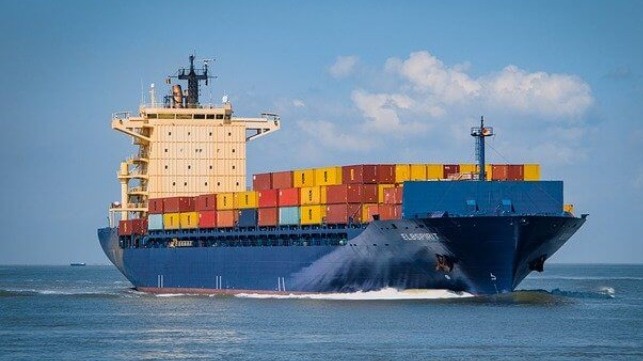The Push for ESG Data is Coming to the Maritime Industry

The corporate world is increasingly linking profitability and sustainability to environmental, social and corporate governance (ESG) criteria, and the shipping industry can expect both challenges and benefits.
The ESG push is coming from financiers, insurers, regulators and customers: powerful companies such as Amazon, Unilever, HP, IKEA and many others. There is no standing still; either ship owners and operators embrace the implementation of effective ESG strategies and the opportunities they present, or risk getting squeezed out of the industry. And if ESG sounds like greenwashing, consider this: global ESG assets are on track to exceed $53 trillion by 2025, representing more than a third of the $140.5 trillion in projected total assets under management, according to Bloomberg Intelligence.
So how can the shipping industry take action and how does it build the data constructs that will be needed to demonstrate its performance over time? In a talk show during London International Shipping Week, satcom company OneWeb sponsored a discussion of these challenges with a panel of experts representing the perspectives of ship owners, insurers and innovators.
As host and leading futurist K D Adamson pointed out, we choose and prioritize the data we consider relevant to our worldview. “This is important because what we value is intrinsically linked to what we measure, and until now, financial data has been dominant, linked to economic, environmental and societal assumptions and priorities which are centuries old. These priorities are changing, and new and non-financial metrics, from the Human Development Index to measuring ecological footprint and resource circularity, are giving us a completely different view of the world,” Adamson said.
Investors, banks, consumers and even employees are beginning to demand credible, standardized information to support long-term assessments of decarbonization, resource scarcity, talent management, data security, crew welfare, diversity and business ethics. In her view, we are entering an era of “radical” transparency that will lead to “contagious accountability” rather than simply more top-down regulation.
Panelist Anthony Gurnee, CEO of Ardmore Shipping, recalled a quote from a professor of strategy who predicted that in the 21st century, for companies to succeed, they’ll have to scale the twin peaks of economic performance and societal progress. “We’re seeing generational changes, and to attract the best people and get the most out of them, you have to have a new approach. We are very happy with that,” he said.
Further to this, he highlighted that as ESG is a set of external metrics, businesses will naturally score better when they have the right philosophy and culture in place to deliver this. For example, a company with a progressive culture that puts performance improvement across all ESG areas such as environmental performance / decarbonization, crew welfare, diverse leadership and teams, and cutting edge governance, will achieve more than an organization that is trying to retrofit its conduct to meet particular criteria.
Fellow-panelist Amy Barnes, head of climate and sustainability strategy for insurance broker and risk advisor Marsh, noted that the financial world is working at a faster pace than IMO’s goals for 2050 as they are concerned about stranded assets, as well as looking closely at their portfolio’s contribution to climate and sustainability. Insurers have a similar aim: net zero underwriting. “I can’t tell you exactly what data is important, but being data-ready is critical, because everything is moving at a faster pace than many of us had anticipated,” she said. Shipping can’t rely on the IMO to prescribe action because the needs and opportunities will be dynamic and driven by activities on land as much as at sea.
As panelist Roberto Coustas, CEO of maritime AI tech company DeepSea, reminded us, the solutions won’t come simply from collecting large volumes of data and then deciding what is useful afterwards – in fact that is counter-productive. He suggested that to begin with, companies should focus on what data is needed to create value - a point of view that was corroborated by fellow panellists. Ship operators and managers should start with smaller data sets and use these to test assumptions or inform ideas. At an industry level to create some consistency, it is anticipated that at first, the ESG metrics called for might be relatively simple as an initial basis for first comparisons.
That is not to say that big data is the enemy. It is a necessary part of the solution, but knowing what to do with the data matters. The ability to perform data triage and to curate the data to extract insights will be what differentiates industry leaders from those struggling with opaque, cumbersome datasets. Going forward, this will only gain momentum and we are already seeing machine learning and AI solutions playing ground-breaking roles in areas such as vessel optimization and sanctions risk mitigation – contributing the E and the G of ESG.
ESG success requires taking a long-term view. While the pressures are imminent, it’s a marathon, not a sprint. Boards – whether independent, listed or family-run – need to have a long-term vision and ensure that ESG strategies are embedded into their broader corporate strategy. This needs to be driven from the top as much as it needs to be a collaboration amongst value-chain partners.
While being in the thick of navigating these complexities, it can be hard to recognize the potential that improving ESG-related performance can bring. Those who succeed will be better placed to secure investment, talent and customers. Ultimately by positioning vessels as data-driven platforms of opportunity to create more financial and societal value, ships have the potential to elevate their role within both commerce and communities.
Carole Plessy is head of maritime at OneWeb.
The opinions expressed herein are the author's and not necessarily those of The Maritime Executive.
